Germany introduces contact restrictions to curb steep rise of COVID-19 infections
Xinhua
1604365319000
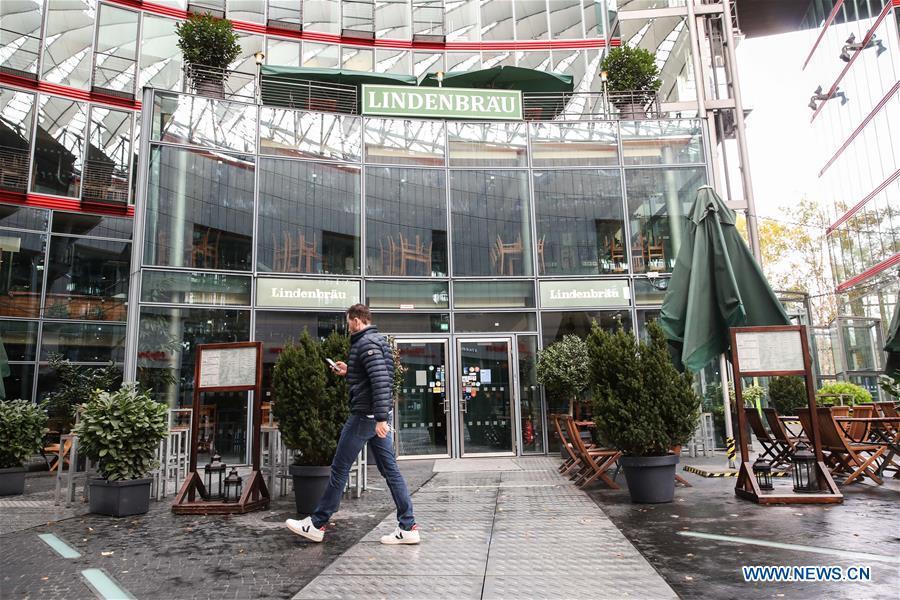
A pedestrian walks past a closed restaurant in Berlin, capital of Germany, Nov. 2, 2020. Effective Nov. 2, Germany's federal and state governments have agreed to introduce sweeping contact restrictions on everyday life to curb the steep rise of COVID-19 infections, the German Press Agency (dpa) reported on Wednesday. (Photo: Xinhua)
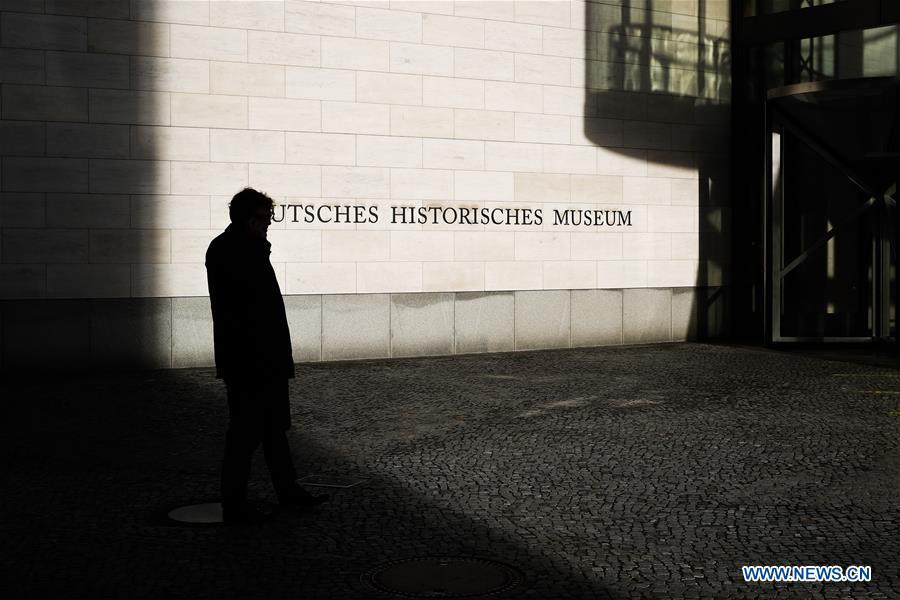
A man stands in front of the closed German Historical Museum in Berlin, capital of Germany, Nov. 2, 2020. Effective Nov. 2, Germany's federal and state governments have agreed to introduce sweeping contact restrictions on everyday life to curb the steep rise of COVID-19 infections, the German Press Agency (dpa) reported on Wednesday. (Photo: Xinhua)
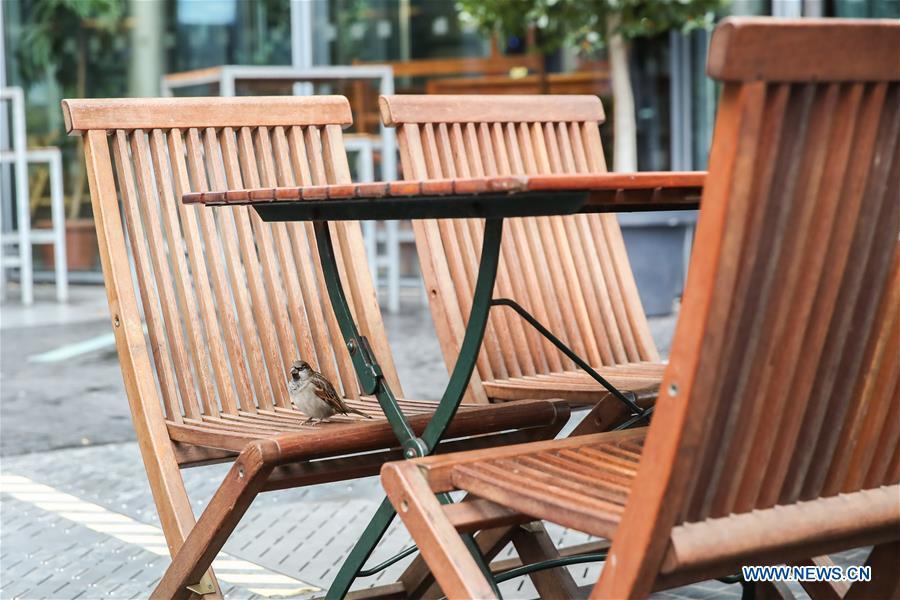
A sparrow is seen on a dining chair outside a closed restaurant in Berlin, capital of Germany, Nov. 2, 2020. Effective Nov. 2, Germany's federal and state governments have agreed to introduce sweeping contact restrictions on everyday life to curb the steep rise of COVID-19 infections, the German Press Agency (dpa) reported on Wednesday. (Photo: Xinhua)
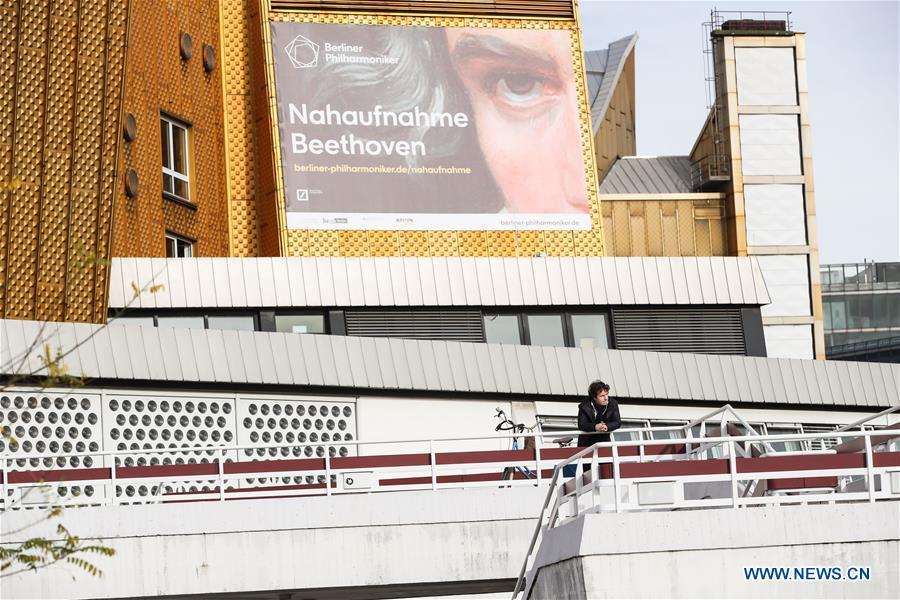
A man stands by handrail of the closed Berliner Philharmonie in Berlin, capital of Germany, Nov. 2, 2020. Effective Nov. 2, Germany's federal and state governments have agreed to introduce sweeping contact restrictions on everyday life to curb the steep rise of COVID-19 infections, the German Press Agency (dpa) reported on Wednesday. (Photo: Xinhua)
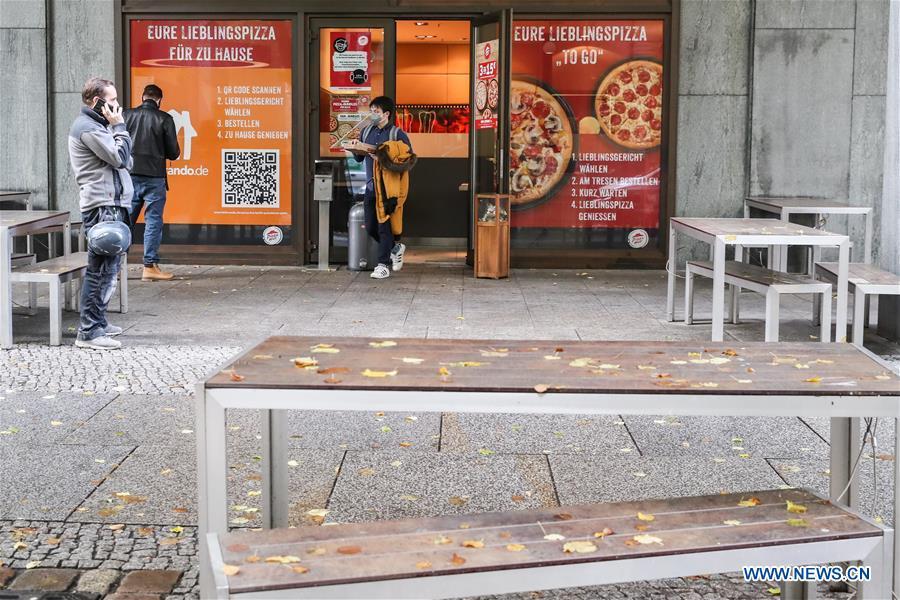
A customer leaves a pizza restaurant with take-away food in Berlin, capital of Germany, Nov. 2, 2020. Effective Nov. 2, Germany's federal and state governments have agreed to introduce sweeping contact restrictions on everyday life to curb the steep rise of COVID-19 infections, the German Press Agency (dpa) reported on Wednesday. (Photo: Xinhua)
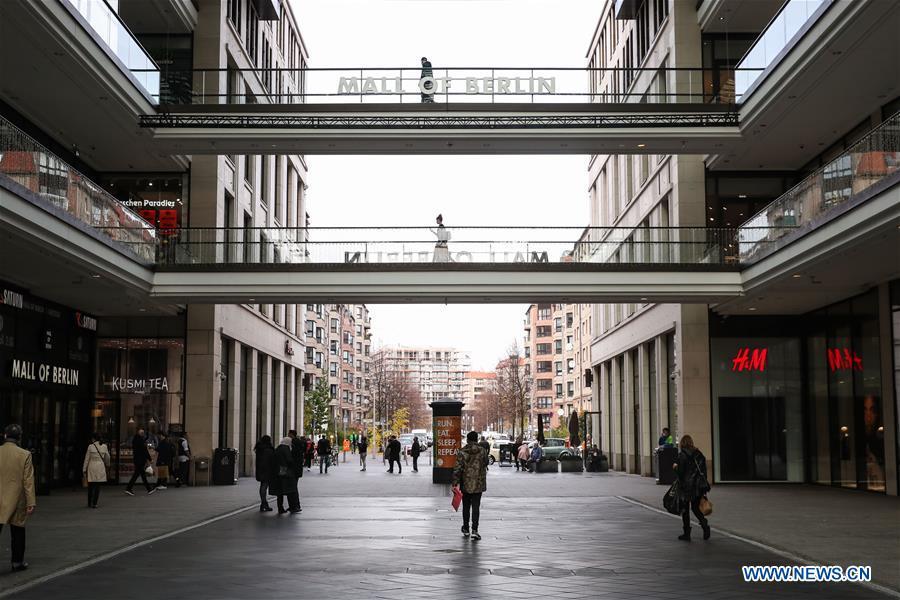
Pedestrians are seen at a shopping mall in Berlin, capital of Germany, Nov. 2, 2020. Effective Nov. 2, Germany's federal and state governments have agreed to introduce sweeping contact restrictions on everyday life to curb the steep rise of COVID-19 infections, the German Press Agency (dpa) reported on Wednesday. (Photo: Xinhua)
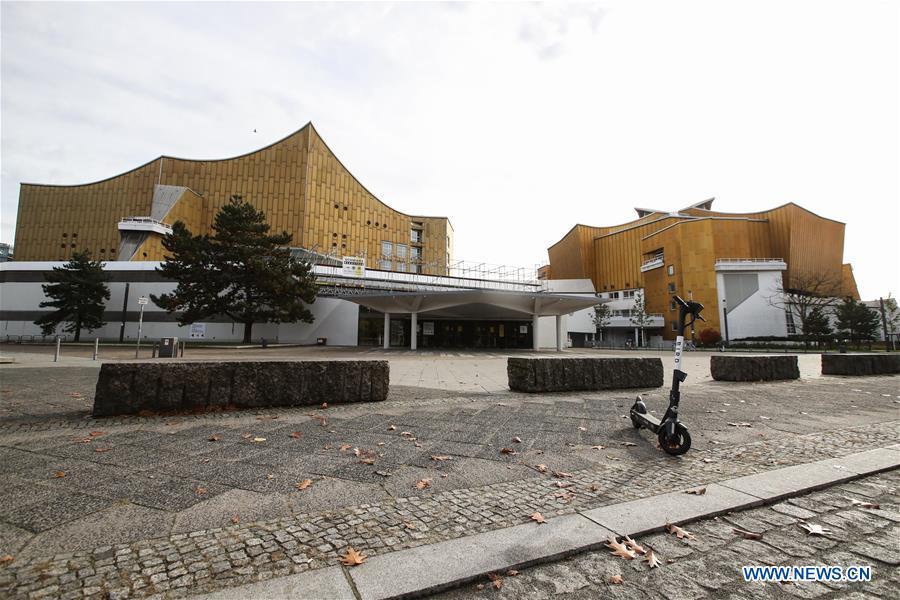
An e-scooter is parked in front of the closed Berliner Philharmonie in Berlin, capital of Germany, Nov. 2, 2020. Effective Nov. 2, Germany's federal and state governments have agreed to introduce sweeping contact restrictions on everyday life to curb the steep rise of COVID-19 infections, the German Press Agency (dpa) reported on Wednesday. (Photo: Xinhua)
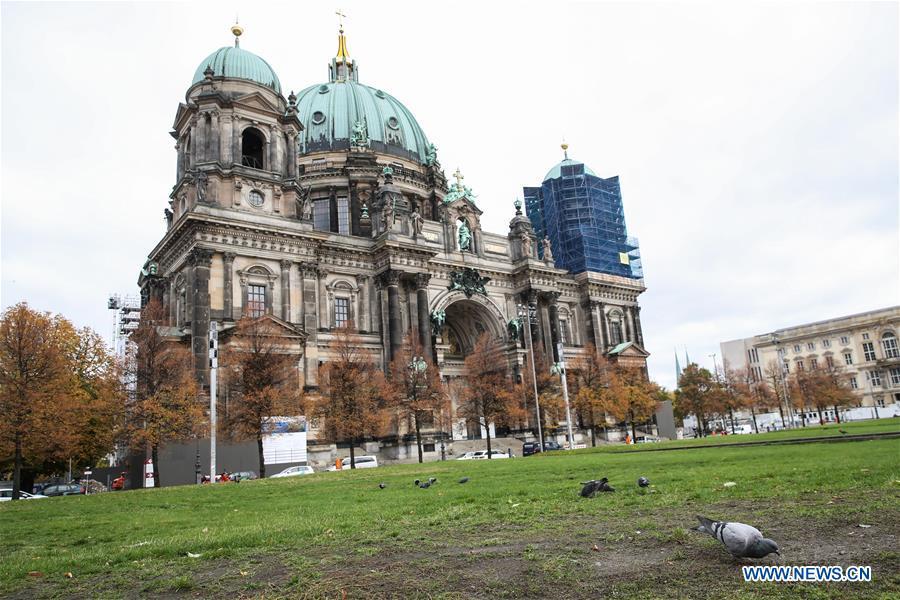
Pigeons forage in front of the closed Berlin Cathedral in Berlin, capital of Germany, Nov. 2, 2020. Effective Nov. 2, Germany's federal and state governments have agreed to introduce sweeping contact restrictions on everyday life to curb the steep rise of COVID-19 infections, the German Press Agency (dpa) reported on Wednesday. (Photo: Xinhua)
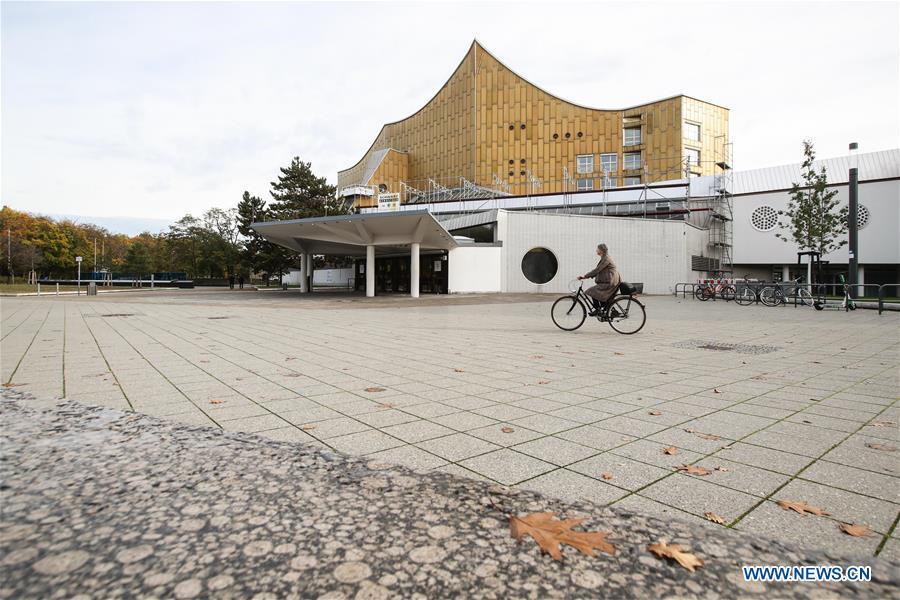
A cyclist passes the closed Berliner Philharmonie in Berlin, capital of Germany, Nov. 2, 2020. Effective Nov. 2, Germany's federal and state governments have agreed to introduce sweeping contact restrictions on everyday life to curb the steep rise of COVID-19 infections, the German Press Agency (dpa) reported on Wednesday. (Photo: Xinhua)
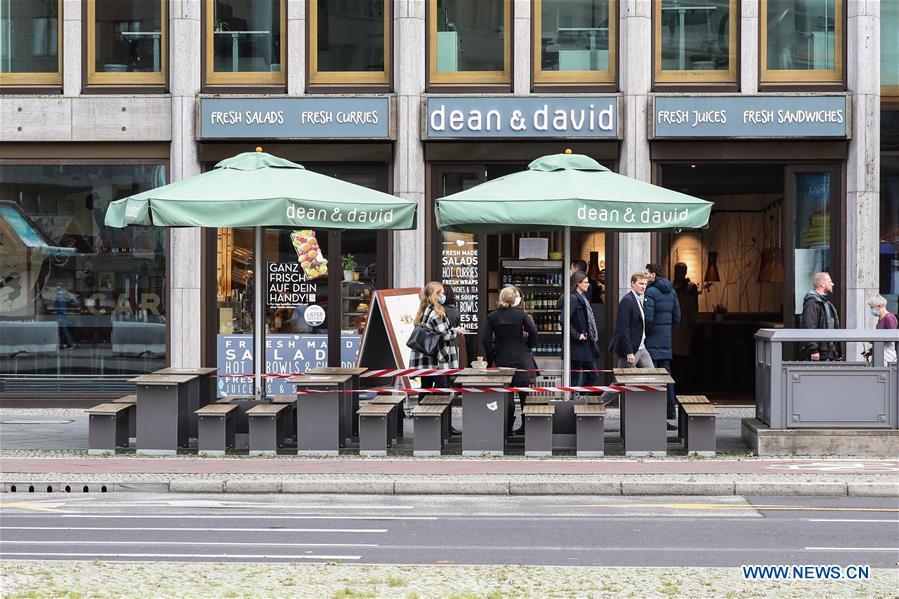
People wait outside a restaurant to buy take-away food in Berlin, capital of Germany, Nov. 2, 2020. Effective Nov. 2, Germany's federal and state governments have agreed to introduce sweeping contact restrictions on everyday life to curb the steep rise of COVID-19 infections, the German Press Agency (dpa) reported on Wednesday. (Photo: Xinhua)
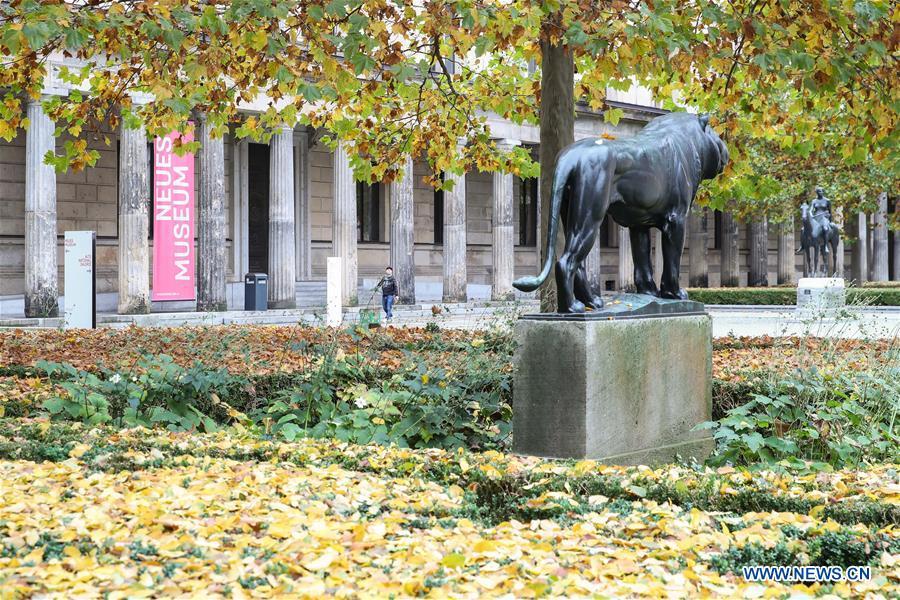
A pedestrian walks past the closed Neues Museum (New Museum) in Berlin, capital of Germany, Nov. 2, 2020. Effective Nov. 2, Germany's federal and state governments have agreed to introduce sweeping contact restrictions on everyday life to curb the steep rise of COVID-19 infections, the German Press Agency (dpa) reported on Wednesday. (Photo: Xinhua)


